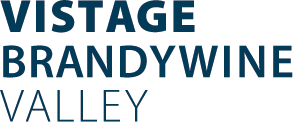Be a model of accountability, Vistage Fundamental #7
Demonstrate accountability by following up on all commitments.
Use Personal Action Summaries effectively by stating them in the form of a verb, noun, and specific date.
Seek updates from others on their actions from previously processed challenges, and provide updates to the group on your own.

by Steve Van Valin
Culturology
steve@culturologyworks.com
484-364-1171
Transcript
This is Steve Van Valin of Culturology, and I’d like to share this month’s fundamental for the Vistage Brandywine Valley Groups led by our master chair, Jim Lucas.
And we have the Vistage Way, which is composed of 14 fundamentals. In each month, we take a focused look at one of them.
And this month, it’s number seven: to be a model of accountability.
Now, we talk about accountability all the time, but I wanted to get back to the egg here on how we can be a model of it by really understanding the definition of accountability in the first place and see if we can apply our energy in the proper direction to make it come to life.
Let’s take a look at this. Accountability, the definition I love is that it’s an attitude of ownership and really a mindset that seeks to discover and act upon the ideal outcome. So, think about that in the context of the challenges that we face. Are we seeking to discover and act upon the ideal outcome?
And a lot of it has to do with how we utilize our energy. There’s a lot of value in looking at the past, looking backward, and asking questions like, “Why did this happen? Or who was responsible for this particular decision? How might have I acted differently that could have changed the outcome? What were the market conditions, and who are the players involved in this decision?”
A lot of times when people think they’re acting accountability, they put a lot of energy in the past, in looking back, maybe 80%. And then, when we look forward into the future, what kind of questions are we asking in that case?
“What might I do to change the outcome? How might I change my approach in the way I coach people to have more influence? What can I do to follow up on the great recommendations that I get at Vistage and everywhere else? How can I find a solution to this challenge right now?”
A lot of times I find that people only spend about 20% of their energy looking forward. That’s where the value is. I’m going to suggest that we flip-flop this ratio.
It’s kind of the Pareto’s principle being applied here. If we’re asking those types of questions about what actions we can take to find the ideal outcome, we’re going to be more creative, more proactive, and be a model of accountability.
When we go back and look at the details within this fundamental, look at how many of them are forward-looking, talking about following up, using personal action summaries, seeking updates from others, providing updates to the group, and even finding specific dates that we’re going to identify to act upon the coaching that we received.
So being a model of accountability, putting more energy and looking forward, asking those types of questions makes all the difference.
This is Steve Van Valin with Culturology.


Sorry, the comment form is closed at this time.